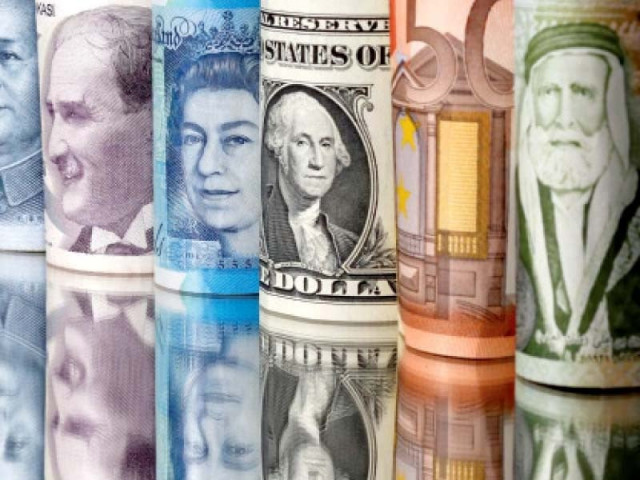Islamic principles: Key to global economic transformation?
Global debt has crossed $305 trillion and no sustainable solution seems to be in sight

Global debt has crossed a significant milestone, surpassing $305 trillion, which now stands at over 300% of the global gross domestic product (GDP), totalling $101.1 trillion in 2022. Despite this alarming figure, no sustainable solution seems to be in sight, with the International Monetary Fund (IMF) predicting that the trend will persist. Meanwhile, development challenges like inequality, food insecurity, and poverty are becoming increasingly complex, with the World Bank noting a continuous rise in inequality. A recent report by Oxfam has further highlighted the startling
fact that the assets and resources of the 10 richest individuals are equivalent to those of 3.1 billion people from the lower strata.
Global leadership and liberal economic institutions often present an inaccurate picture to the public, using GDP size as a misleading instrument to measure individual economic health. They promote the idea of trickle-down effects while employing think tanks, experts, and media to construct and propagate fake models and frameworks that hide the truth. In reality, the liberal economic and governance system is biased in favour of the powerful.
The contemporary economic model fosters wealth accumulation due to two primary reasons: Riba (interest) and a lack of wealth redistribution systems. These factors have contributed to a myriad of challenges in the world.
Riba-based economic systems accelerate wealth accumulation, as they enable individuals to earn money without taking any risks by keeping funds in banks or through other financial instruments. This leads to the concentration of wealth in the hands of a few, strengthening their control over resources while leaving the vast majority to suffer. Moreover, Riba discourages investment in productive sectors and businesses, hampering job creation and essential wealth redistribution.
Additionally, formal mechanisms for wealth redistribution are lacking in the liberal economic model, which promotes individualism and the survival of the fittest. While some consider the tax system as a tool for redistribution, it fails to qualify for that purpose, as it applies to all citizens. The political economy of the liberal economic system views the tax system as an instrument of compensation rather than redistribution, leading to an inherent flaw that creates
winners and losers. Consequently, governments worldwide tend to reward the wealthy with tax concessions while increasing taxes for the less fortunate, exacerbating inequality and poverty.
Given this backdrop, a system is required to address these challenges, one that discourages accumulation, encourages investment in productive sectors, and promotes wealth redistribution. The Islamic economic system stands as a potential solution, given its inherent mechanisms and laws, which tackle these issues. The Islamic economic model, guided by Allah (SWT) and propagated by Prophet Muhammad (PBUH), ensured human welfare, social justice, and environmental sustainability. This system, with its focus on human dignity, also offers solutions to contemporary global economic challenges.
Firstly, the Islamic Economic Model addresses issues of Riba by strictly prohibiting it in any form. Riba is considered a cruel act and an injustice to humans, creating divisions in society and reinforcing the class system. Instead, Islam promotes a system of kindness and voluntary sharing of resources to take care of one another, encouraging Riba-free financial transactions.
Secondly, to redistribute wealth, the Islamic Economic Model introduces the instrument of Zakat, among others. It mandates that wealthy individuals share a certain portion of their wealth (at least 2.5%) with the poor annually. This sustainable practice ensures wealth redistribution continues without any interruptions or exceptions, with the proportion increasing alongside wealth growth, without requiring new rules or regulations.
Moreover, Zakat contributes to consumption, benefiting business entities by providing the poor with resources to spend, particularly on essential commodities. This stimulates local consumption and creates new business opportunities, while the policy targets the poorest segments of society, uplifting them. The process of redistribution continues until society becomes prosperous, bridging the gap of inequality or even eliminating it entirely. Other economic models can learn from Zakat as a promising case study, despite being mandatory for Muslims.
Lastly, the Islamic model upholds informal systems of sharing resources, glorifying such acts of kindness as among humanity’s best qualities. This further promotes caring for the poor and weak in society.
Unfortunately, despite these effective instruments and laws, few countries have adopted the Islamic economic system. Even some Muslim-majority countries and Muslims, for whom it is obligatory, have abandoned these principles. Riba is considered a war against Allah (SWT) and His Prophet Muhammad (PBUH), while Zakat stands as one of the five pillars of Islam. Notably, China’s socialism with Chinese characteristics demonstrates a few glimpses of a similar system, which effectively tackled poverty and inequality.
In conclusion, the Islamic economic model offers unique instruments and laws that could potentially solve the challenges of debt accumulation, wealth disparity, poverty, and inequality. Without embracing these principles, global debt will continue to escalate, while inequality and poverty will rise, perpetuating the survival of the fittest mentality. Such a scenario will turn the world into a lawless jungle, devoid of the rule of law.
THE WRITER IS A POLITICAL ECONOMIST AND A VISITING RESEARCH FELLOW AT HEBEI UNIVERSITY, CHINA
Published in The Express Tribune, July 31st, 2023.
Like Business on Facebook, follow @TribuneBiz on Twitter to stay informed and join in the conversation.



















COMMENTS
Comments are moderated and generally will be posted if they are on-topic and not abusive.
For more information, please see our Comments FAQ